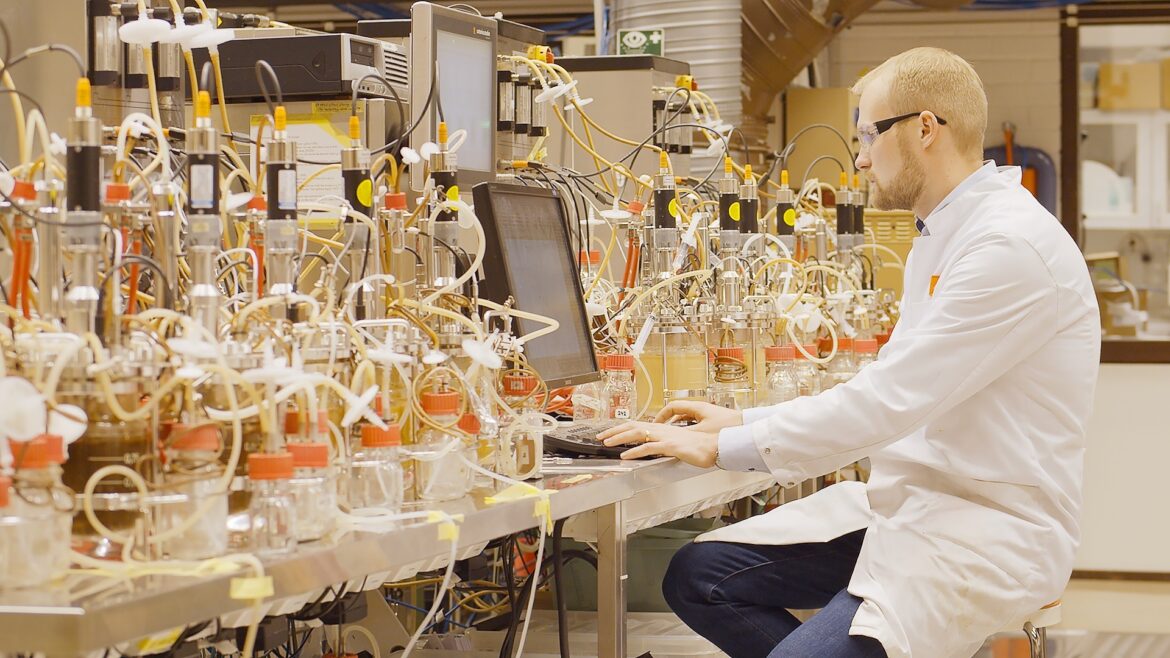B.Tech in Biotechnology industry is revolutionizing the way we manufacture products while keeping our planet healthy. With this innovative technology, businesses can reduce waste, save energy, and cut down on harmful emissions. But what exactly is industrial biotechnology? And how does it create sustainable manufacturing processes? In this blog post, we’ll explore the world of industrial biotech and discover how it’s changing the game for a more eco-friendly future. So buckle up and let’s dive in!
Interested in studying biotechnology? Join Best biotech college of Himachal at JUIT.
What is Industrial Biotechnology?
B.Tech in Biotechnology is a field that merges biology, chemistry, and engineering to create sustainable manufacturing processes. It involves using living organisms like bacteria or enzymes to produce useful products such as biofuels, chemicals and pharmaceuticals.
This technology harnesses the power of nature’s molecular tools in industrial settings. By utilizing natural biological processes, it can replace traditional chemical-based methods with more environmentally friendly alternatives.
One of the primary goals of industrial biotechnology is to reduce waste generated by industries while also lowering greenhouse gas emissions. With this technology, businesses can operate sustainably without compromising their bottom line.
Industrial biotechnology has numerous applications across various industries including food and beverage production, agriculture, energy production and even medical research. Researchers are constantly exploring new ways to apply this innovative approach to enhance efficiency in diverse fields.
Industrial Biotechnology offers an exciting opportunity for businesses looking for ways to manufacture goods sustainably while reducing their carbon footprint on the environment.
Also Read: What Is Data Science? Importance Of Data Science
What are the Sustainable Manufacturing Processes?
Sustainable manufacturing processes are those that aim to minimize the negative impact of production on the environment, while ensuring efficient and profitable operations. These processes focus on reducing waste, emissions and energy consumption throughout the entire product lifecycle.
One example of a sustainable manufacturing process is closed-loop recycling. This involves reusing materials or products at the end of their useful life instead of discarding them as waste. Another example is lean manufacturing which aims to eliminate waste by optimizing production processes and minimizing inventory levels.
Sustainable manufacturing also includes using renewable energy sources such as solar or wind power instead of relying solely on non-renewable resources like fossil fuels. Additionally, it involves implementing eco-friendly practices in all aspects of production including packaging, transportation and distribution.
Sustainable manufacturing ensures that businesses meet regulatory requirements while also promoting social responsibility and ethical practices. By adopting these methods companies can reduce costs over time while creating products that align with consumer demand for environmentally friendly options.
Why is it Important?
Industrial Biotechnology is crucial for creating sustainable manufacturing processes that are not only eco-friendly but also more efficient and cost-effective. In today’s world, where the threat of climate change looms large, businesses need to be responsible and take steps towards sustainability.
One of the biggest advantages of using industrial biotechnology in manufacturing processes is that it reduces our reliance on non-renewable resources such as fossil fuels. Instead, it utilizes renewable resources like biomass to produce energy and materials. This not only helps reduce carbon emissions but also ensures a steady supply chain for manufacturers.
Moreover, industrial biotechnology can help industries create products with improved performance and durability while reducing their environmental footprint. It opens up new opportunities for innovation by enabling manufacturers to develop bio-based alternatives to traditional petroleum-based products.
In addition, integrating sustainable practices into manufacturing operations can improve a company’s reputation with consumers who are increasingly aware of environmental issues. By demonstrating a commitment to sustainability through its actions, companies can attract socially conscious customers and build brand loyalty.
Industrial Biotechnology offers countless benefits when it comes to creating sustainable manufacturing processes that benefit both the environment and businesses themselves.
How to Use It Safely
Industrial biotechnology offers immense potential for creating sustainable manufacturing processes. However, like any other technology, it needs to be used safely to prevent adverse effects on the environment and human health.One way to use industrial biotechnology safely is by implementing a risk assessment plan before introducing new products or processes into the market. This can help identify potential hazards and develop strategies for mitigating risks.
Another important aspect of safe industrial biotechnology is proper waste management. Biotechnology-based manufacturing processes produce various types of wastes that need careful handling to prevent contamination of soil, water or air. Proper disposal methods such as recycling, incineration or landfills should be employed depending upon the type and quantity of waste generated.
It’s also crucial to ensure that all equipment used in industrial biotech manufacturing is properly maintained and inspected regularly. Equipment failure can lead not only to production losses but also safety hazards for workers.
Training employees about safety protocols is equally essential when it comes to using industrial biotech safely. Workers must understand how hazardous materials are handled, how machinery works, appropriate personal protective equipment (PPE), etc., which will reduce incidents caused by human error.
In summary, while industrial biotechnology brings many benefits; its implementation requires careful consideration of safety measures. Therefore, companies must work collaboratively with regulators and stakeholders from different sectors towards ensuring safe practices within this emerging field.
Conclusion
Industrial biotechnology offers a promising solution to create sustainable manufacturing processes. By leveraging the power of biological systems and microorganisms, we can develop environmentally friendly methods of producing goods that are safer for humans and better for the planet.
However, it is important to use industrial biotechnology safely and responsibly. We must continue to invest in research and development to ensure that these new technologies are both effective and safe.
Ultimately, by embracing sustainable manufacturing practices through industrial biotechnology, we can help protect our environment while still meeting our needs for goods and services. It’s a win-win situation that benefits everyone involved. So let’s work together towards a more sustainable future!




